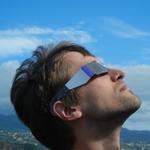


Degree: Ph.D.
Position: Associate Professor
Division: Astrophysics II (Warsaw)ORCID: 0000-0002-4991-8213
Office: 130
Phone: +48 223296130
Personal website: http://users.camk.edu.pl/bejger
E-mail: bejger@camk.edu.pl
Michał Bejger is a professor at the Nicolaus Copernicus Astronomical Center (CAMK) in Warsaw and at the Italian National Institute for Nuclear Physics (INFN) in Ferrara.
He obtained his PhD in astrophysics at CAMK in 2005. His postdoctoral fellowship (Marie Curie Fellowship) took place at the Paris Observatory (2006 - 2007) and the Nicolaus Copernicus Astronomical Center (2007 - 2008, Marie Curie Reintegration Grant), and a few years later he received his habilitation degree (2013). In 2018 - 2019, he was employed at AstroParticule et Cosmologie (APC; CNRS, Université Paris Cité) in the French group of the Virgo collaboration, whose research was devoted to astrophysics and gravitational wave data analysis and machine learning problems. Since 2021, he has been employed at INFN Ferrara.
Since 2010, he has been involved in projects related to the detection and interpretation of gravitational wave data, as well as the construction of the LIGO - Virgo - KAGRA detectors network, where he is co-chair of one of four working groups analyzing continuous waves data. He is also involved in the work of the design and research team for the construction of the Einstein Telescope, where he is the coordinator of the scientific council (Einstein Telescope Observing Science Board), in a working group studying the configurations of future detectors, and data analysis tools.
List of publications in NASA ADS service and on the "home page".
M. Bejger's group currently includes doctoral students Sudhagar Suyamprakasam, Anirudh Nemmani, Matteo Scialpi, Valeria Carvalho, and PhDs: Sreekanth Harikumar, Przemysław Figura, and Paweł Ciecieląg. Previous collaborators are: dr Magdalena Sieniawska, dr Filip Morawski, dr Jonas P. Pereira.